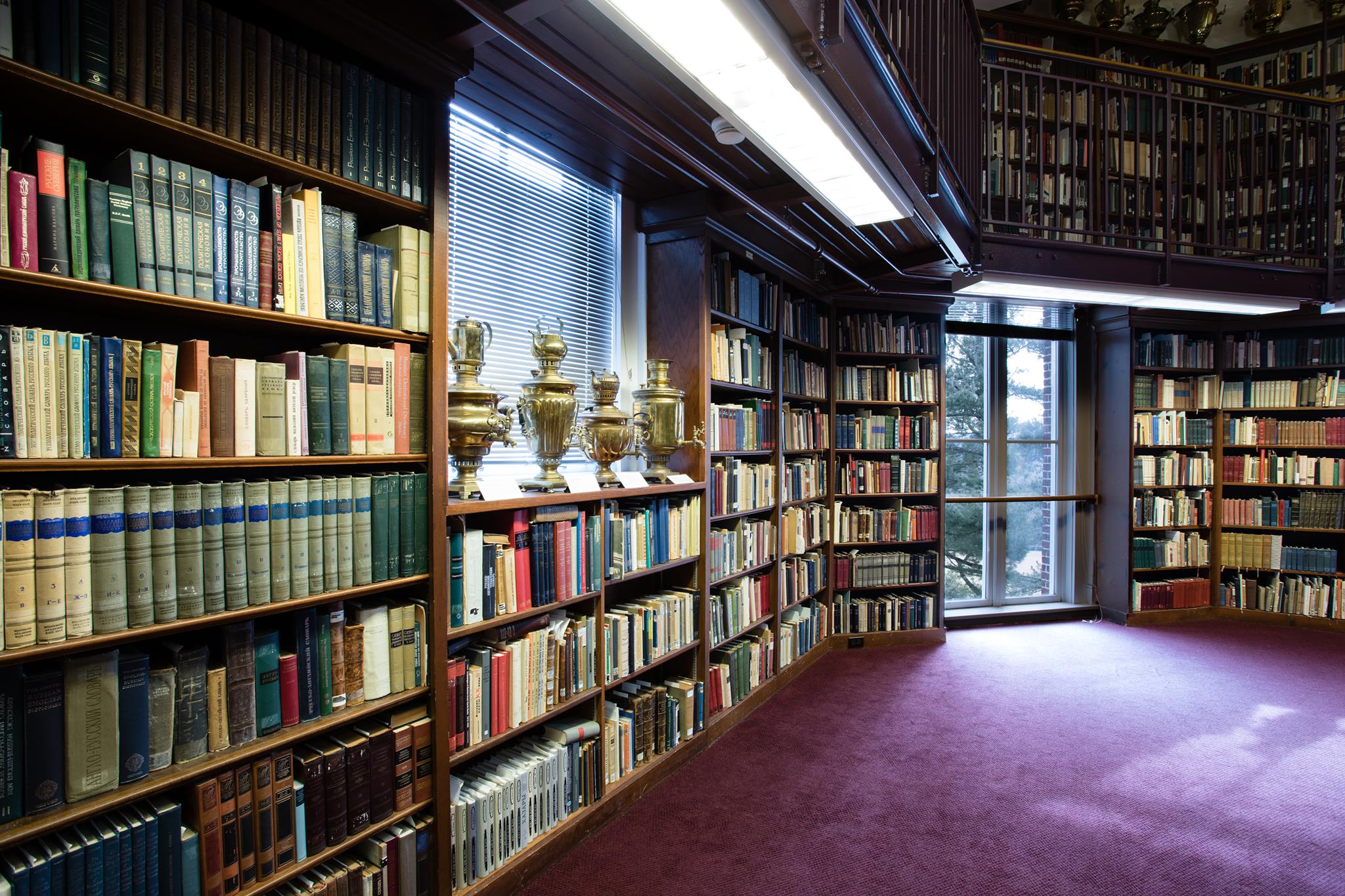Four Russian scholars from the college visited and took part in a roundtable discussion on Monday, February 26, regarding the life and impact of Alexei Navalny, the Russian opposition leader who recently died in suspicious circumstances in a Siberian prison. The event, held in the Amherst Center for Russian Culture, featured a floor-to-ceiling collection of Russian books, setting the backdrop for the speakers’ reflections following a segment from a 2022 documentary on Navalny. The focus was on unveiling the political landscape of Vladimir Putin’s Russia through Navalny’s narrative.
The speakers delved into the profound emotional impact of Navalny’s passing, drawing parallels to the shock felt during the assassinations of Martin Luther King Jr. and Robert Kennedy. One panelist, opting for anonymity to safeguard relatives in Russia, likened the grief over Navalny’s death to the loss of a close friend.
Navalny, renowned as Putin’s most vocal critic, gained recognition for his unsuccessful yet high-profile electoral campaigns, engaging social media presence, and exposés on Russian elite corruption through viral videos. Despite facing numerous arrests and a near-fatal poisoning orchestrated by the Russian government in 2020, the circumstances surrounding Navalny’s demise remain shrouded in uncertainty.
The discussion also touched upon Navalny’s distinctive approach to politics, with a focus on his grassroots appeal and innovative strategies. His visual branding, characterized by simplistic fonts and vibrant colors reminiscent of Soviet and futurist art, aimed to inspire Russia’s youth while effectively critiquing the establishment.
While acknowledging Navalny’s charisma and contributions to Russian politics, the panelists debated his controversial past affiliations and strategic decisions, including his return from exile despite apparent risks. The conversation highlighted Navalny’s evolution as a leader and the challenges he faced in mobilizing widespread support against Putin’s regime.
Despite differing opinions on Navalny’s tactics and the future of Russian opposition, the speakers noted the enduring impact of his advocacy on public discourse and political consciousness. They expressed cautious optimism for the seeds of change Navalny sowed, particularly among the younger generation, in fostering a more competitive and legalistic political landscape in Russia.
The event concluded with a hopeful outlook, underscoring Navalny’s legacy as a symbol of resistance against oppressive regimes. The attendees, including Lukas Luby-Prikot ’26, praised the insightful and nuanced perspectives shared during the discussion, offering a deeper understanding of Navalny’s legacy and the complexities of Russian politics.
For those interested, the documentary “Navalny” is scheduled for screening at the Keefe theater on Wednesday, February 28, with showtimes at 4:30 p.m. and 8 p.m.
